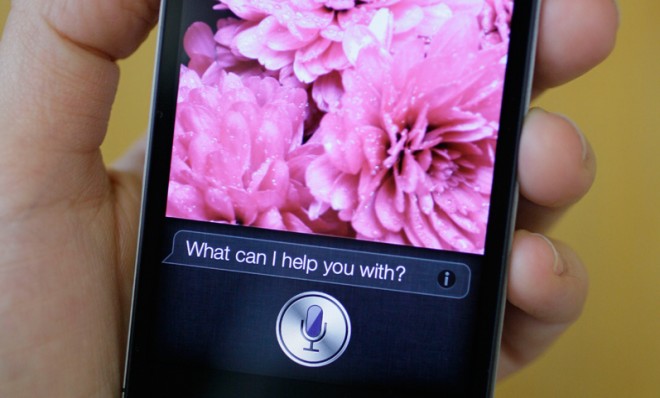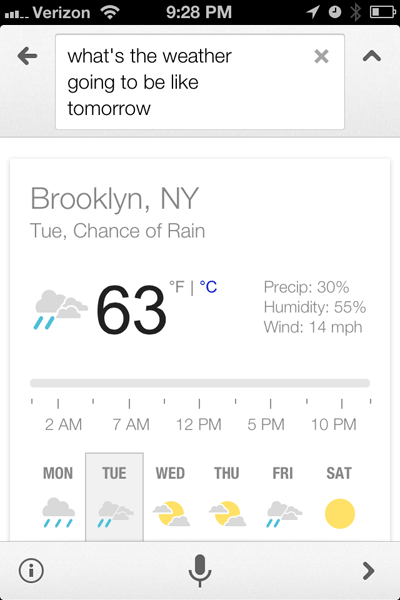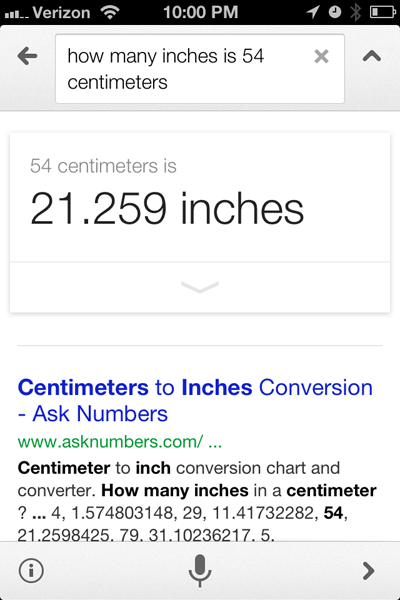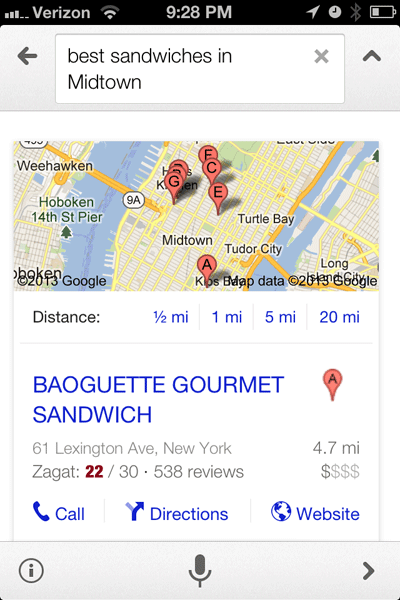Adios, Siri! What Google Now's iOS invasion means for the iPhone
Short answer: Thanks to Google, your iPhone just got better

A free daily email with the biggest news stories of the day – and the best features from TheWeek.com
You are now subscribed
Your newsletter sign-up was successful

Android loyalists often cite market share when pronouncing their platform's victory over iOS, but that metric doesn't tell the whole story. Sure, Google commands a chunky 51 percent of the U.S. smartphone market, but the hard truth is that the king of search doesn't really kill it in the hardware game, at least not profit-wise. (Harry McCracken at TIME has a great breakdown of the iOS vs. Android debate here.)
Where Google really cashes in is cyberspace — namely, anywhere pixelated that the company can showcase ads. The big caveat is that effective — and therefore profitable — advertising requires an engine of consumer data humming underneath it. That dramatically oversimplified explanation is why it's in Google's best interest to be everywhere it can, even if that means investing time and resources to build products for competitors like Apple.
With Google Now, a voice-activated virtual assistant that was released Monday as part of Google's Search app, Google's quiet invasion of iOS is now complete. For iPhone owners, it's a clear victory. Your iPhone is better for it. If you haven't already, tuck away Apple's Safari browser, Apple Maps, and Siri, and immediately replace them with their superior (and free) Android counterparts: Chrome, Google Maps, and Google Now.
The Week
Escape your echo chamber. Get the facts behind the news, plus analysis from multiple perspectives.

Sign up for The Week's Free Newsletters
From our morning news briefing to a weekly Good News Newsletter, get the best of The Week delivered directly to your inbox.
From our morning news briefing to a weekly Good News Newsletter, get the best of The Week delivered directly to your inbox.
What makes Now so much better than Siri? Unlike Siri, Now actually listens.
Last night, in lieu of actual human contact, I spent a considerable amount of time chatting with my new BFF Google Now. I pelted Google Now with queries like: "What's the weather going to be like tomorrow?" (Remember, even though you see text in the query box, these are words I spoke that Now automatically translated into text.)

"Show me pictures of Boston terriers."

"How many inches is 54 centimeters?"
A free daily email with the biggest news stories of the day – and the best features from TheWeek.com

"Best sandwiches in midtown?"

How about...

Google Now is great. It's everything Siri isn't — fast, reasonably accurate, and responsive. Google Now is the best voice assistant available.
For Apple, Google Now is hugely problematic, much in the same way that Google Maps stifles Apple Maps' hopes of ever catching up. The only way Apple's buggy, comically ineffective software is going to improve is for people to actually use it. But when better options are available, why would anyone but the most die-hard iFans elect to use something empirically inferior?
Unlike Siri — which relies on the 4-year-old database Wolfram Alpha for answers — Google has had 15 years (and hundreds of billions of search queries daily) to refine its algorithms and beam its users helpful, relevant answers. Even $100 billion in stockpiled cash can't buy Apple time. As Gizmodo's Brian Barrett notes: "The fact is, Google still doesn't ultimately care what device you're using its service on as long as you're using them." If you're Google, it's an enviable position to be in: A better product means more usage; more usage means a better product.
And if you're an iPhone owner, the answer is clear: Use Google's apps. Your life will be better for it.
But if you're Apple watching Google's apps ninja their way onto iOS's homescreen? The answers aren't quite so easy to come by.
-
 Health insurance: Premiums soar as ACA subsidies end
Health insurance: Premiums soar as ACA subsidies endFeature 1.4 million people have dropped coverage
-
 Anthropic: AI triggers the ‘SaaSpocalypse’
Anthropic: AI triggers the ‘SaaSpocalypse’Feature A grim reaper for software services?
-
 NIH director Bhattacharya tapped as acting CDC head
NIH director Bhattacharya tapped as acting CDC headSpeed Read Jay Bhattacharya, a critic of the CDC’s Covid-19 response, will now lead the Centers for Disease Control and Prevention